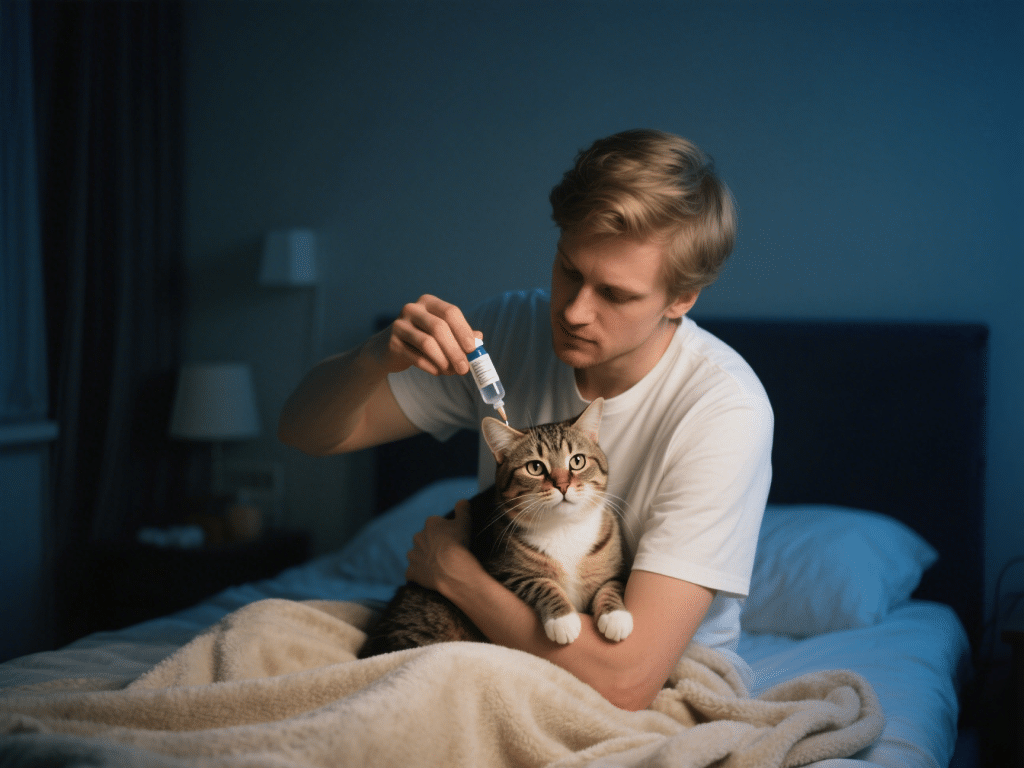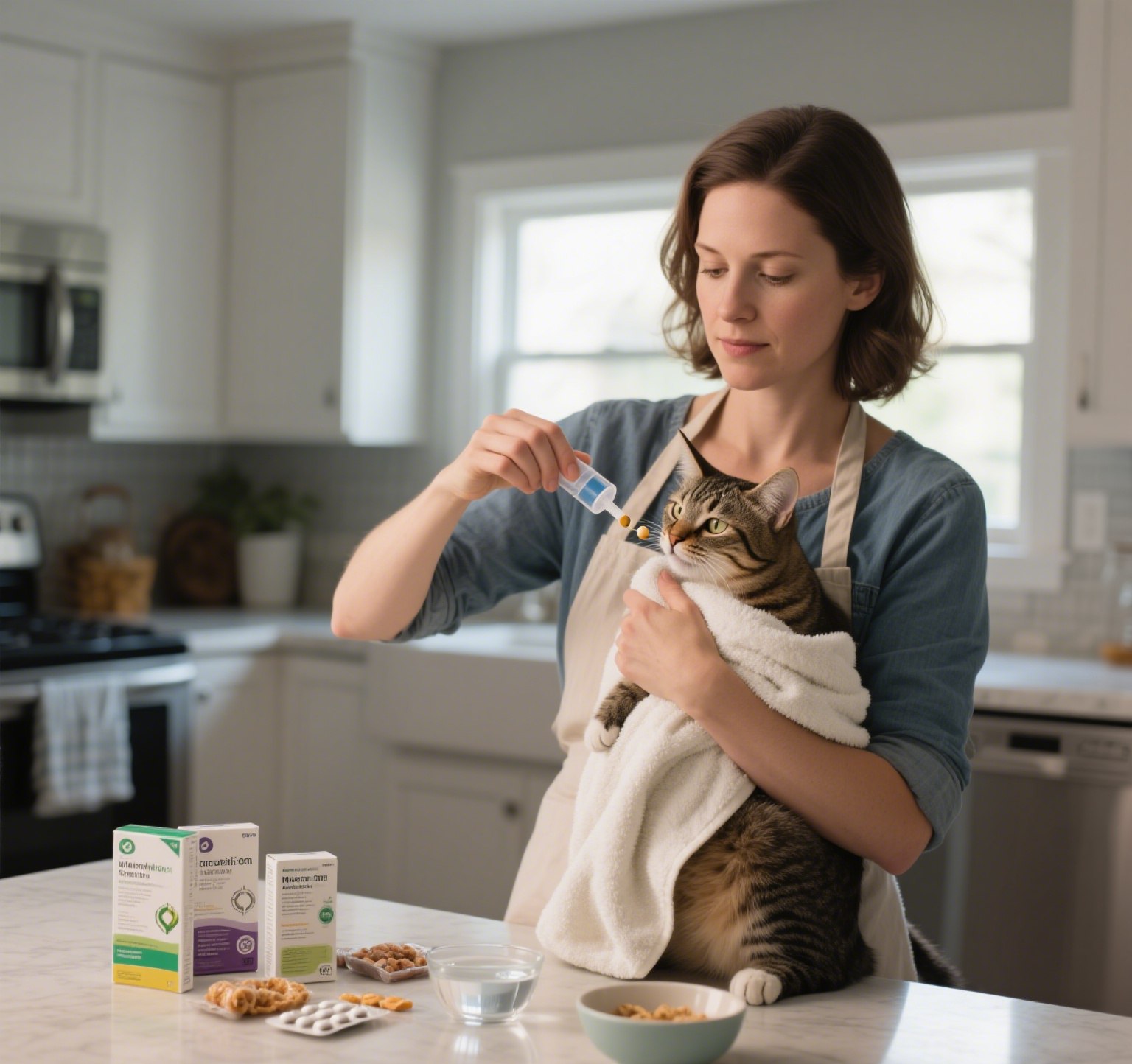Choosing the Right Cat Dewormer for Flea-Infested Homes
Introduction
Flea infestations pose dual threats to cats: itching, dermatitis, and tapeworm exposure (via flea ingestion). Selecting a dewormer that addresses both fleas and intestinal parasites is crucial in flea-prone households. This guide helps you choose the best cat dewormer for such environments.
1. Understand the Parasite-Flea Connection
Tapeworm Transmission: Cats ingest infected fleas while grooming; tapeworm cysts hatch in the digestive system.
Concurrent Infestations: Fleas can carry other pathogens (e.g., Bartonella), compounding health risks.
2. Topical (Spot-On) Combination Treatments
Selamectin (Revolution®)
Spectrum: Flea prevention, heartworm, roundworms, hookworms, ear mites.
Application: Monthly spot-on between shoulder blades.
Benefits: Broad-spectrum coverage minimizes the need for multiple products.
Fipronil/S-Methoprene (Frontline Plus®)
Spectrum: Flea and tick prevention; does not directly target intestinal worms.
Pair with Dewormer: Combine with a monthly pyrantel-based oral dewormer for tapeworm control.
3. Oral Deworming Tablets for Tapeworms
Praziquantel (Droncit® Tablets)
Dosage: 5–7.5 mg/kg orally as a single dose.
Frequency: Administer every 1–2 months in flea-endemic seasons.
Administration Tip: Offer inside a small portion of soft food to improve acceptance.
4. Integrated Flea Control Strategies
Environmental Treatment
Vacuum carpets, furniture, and bedding weekly to eliminate flea eggs and larvae.
Use veterinary-grade home sprays or foggers with insect growth regulators (IGRs).
Preventive Measures
Bathe/eliminate fleas on other pets; treat all household animals concurrently.
Wash bedding in hot water weekly.
5. Monitoring and Veterinary Consultation
Fecal Testing: Quarterly fecal exams to detect tapeworm segments or eggs.
Physical Exams: Check for flea dirt (tiny black specks) in the cat’s coat weekly.
Weight and Behavior Monitoring: Persistent scratching, hair loss, or weight loss warrant immediate vet attention.
Conclusion
In flea-infested homes, the optimal cat dewormer regimen includes a combination of topical flea-and-parasite preventives like Revolution® and targeted oral tapeworm treatments such as Droncit®. Integrated environmental control and regular veterinary check-ups ensure your cat remains free from fleas and intestinal parasites.
Explore Dogs

Safe Timing to Bathe Your Dog Before or After Deworming
IntroductionBathing a dog too soon before or after deworming may impact medication absorption and sk...
Read More
Step-by-Step: Administering Dewormer to a Nervous Cat
IntroductionAdministering oral medication to a nervous cat can be challenging. Stress can compromise...
Read More
How Often to Deworm Your Kitten: A Complete Guide
IntroductionKittens often acquire intestinal parasites via the mother or the environment. Regular de...
Read More
Seasonal Deworming Strategy: Fleas in Summer, Roundworms in Winter
Why Seasonality Matters in Parasite ControlTemperature and humidity fluctuations dramatically influe...
Read More
Best-Tasting Dewormers for Cats: A Flavor Guide for Fussy Felines
Why Flavor Matters in Feline DewormingCats detect bitterness 100x more intensely than humans due to ...
Read More
How to Safely Combine Internal and External Dewormers for Cats
How to Safe Protocols for Combining Internal and External Dewormers in CatsEffective feline parasite...
Read More
Top 10 Mistakes Cat Owners Make When Deworming (and How to Avoid Them)
Top 10 Mistakes Cat Owners Make When Deworming (and How to Avoid Them)Effective deworming is crucial...
Read More
Top 5 Cat Dewormers Compared: Vet-Approved Options for Internal and External Protection
Top 5 Cat Dewormers Compared: Vet-Approved Options for Internal and External ProtectionIntroductionI...
Read More
How to Give Deworming Medication to Your Cat Without a Struggle
How to Give Deworming Medication to Your Cat Without a StruggleAdministering deworming medication to...
Read More